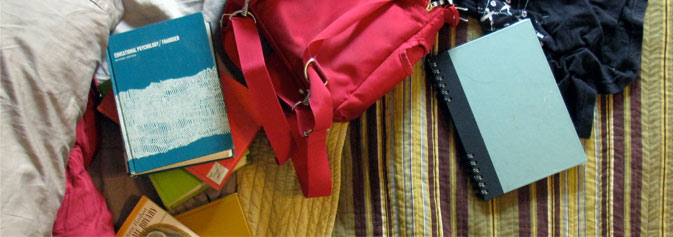Following a letter that detailed frustrations and concerns from members of the Resident Assistant staff, administration and Student Life are working together to assure there is an open line of communication between students and professional staff members. The letter was sent to various members of administration, several area directors, and Father Linnane by an RA who expressed displeasure with several issues, but particularly the handling of conduct incidents and the compensation process for the student employees.
The RA in question has asked to remain anonymous for this article, but explained why he sent out the letter, “My goal is to receive clarity on some of the policies and issues that were mentioned. If change is in order, and possible, that is what we want.”
Dr. Sheilah Shaw Horton, vice president for student development and dean of students, met with the RA staff member after the letter was sent out to try to come to conclusions on how to improve upon the situations that were mentioned.
Dr. Horton shared with The Greyhound that many of the issues in the letter could have been resolved by reaching out directly to the Director of Student Life. For example, the conduct issue in question was already being addressed by Dr. Spearman and other members of her team. “I would encourage students before you start a conversation to get the facts, and the best way to get facts is to go directly to the source,” Horton added. Dr. Spearman and the RAs who still have concerns are set to meet up in the coming weeks in hopes to open communication between the two groups.
Another concern raised during this discussion was the fact that members of the RA staff do not know the results of conducts hearings. Horton explained that the University legally is not at liberty to release such results due to student privacy, but hoped that RAs would have faith in the system, “What I would say to all RAs is that I would hope you would trust if a student has gone through the conduct system that we have a fair process in place.”
Besides the handling of conduct issues, the other most pressing issue in the letter was about financial aid. The letter states, “The University has failed to respond with sufficient funding as compensation for [RA] duties. In some cases, (I know this in part[ly] by experience) RAs are actually charged more to attend the University than if they had not accepted the position.”
Mark Lindenmeyer, director of financial aid, clarified what exactly goes in to planning RA compensation and addressed the claims in the letter. “It would not be possible for a student to be paying more as an RA versus not taking the RA position,” Lindenmeyer explained, and said financial aid packages only change as the family’s need changes year to year.
Financial aid is a very individual practice, and aid is calculated based on family circumstances from year to year. When a student becomes a RA the compensation package they receive is considered work aid and is credited towards their account. The package is broken down as follows: by the value of the award, the room charge of $10,600, a compensation fee of $400 and a meal allowance that ranges from $2,220 for new hires to $2,700 for returning workers.
When many RAs accept the position, work-study options are eliminated, which allows for unsubsidized loans to be used towards the family contribution to tuition. It is an intricate process, and Lindenmeyer explained it is very difficult to substitute federal loan assistance, which is often what students want to reduce, as opposed to grant money, since it needs to be paid back in full. Before RAs take the position, student life and financial aid encourage that students meet with a counselor to give an estimate about how the RA package would affect their aid based off the current year. “Our goal is to incorporate the value of the RA position into financial aid packages as positively as possible so it doesn’t negatively affect a student’s eligibility for grant assistance” Lindenmeyer said.
Dr. Horton worked with Financial Aid several years ago to make sure the compensation package for RAs was obviously additional, but vowed to check back in with the department to make sure the process is managed correctly.
“RAs should see some financial benefit as they have a very important job and we rely on them to build community and keep an eye out for what’s happening on campus.” Horton shared.
While discussion is still in its very early stages, both groups seem to be making positive strides towards working better together. The RA who sent the letter is optimistic moving forward, “I am pleased with the way our concerns have been handled by the administration, and am confident that student life will begin to work towards building more clear lines of communication with RA staff.”
Directors and RAs will continue to have open discussions on this topic, with one idea in the works of potentially forming a committee of RAs that would act as spokespeople and mediators of discussion between the student staff and professional staff. On the administration side, the main goal is simple, “We want to improve communication but also re-visit how and why things are done the way they are, and to make sure RAs are comfortable asking questions.”
Cover photo courtesy of Loyola Student Life















































































































